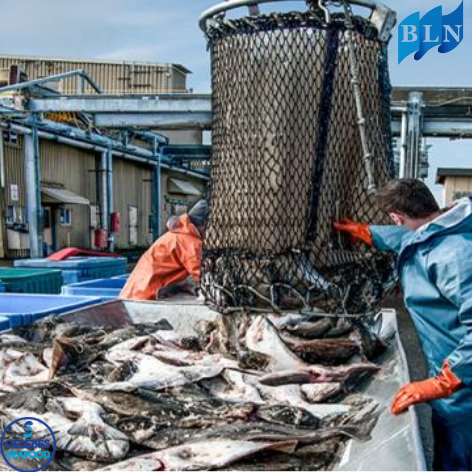Comparison of Indonesian Tax Increase Policy from a Global Perspective
By. Rani - 14 Apr 2025
lautnusantara.com_ Tax increase policy is often a hot and controversial topic in various countries, including Indonesia. The government uses this fiscal instrument for various purposes, ranging from increasing state revenue, funding development programs, to regulating people's economic behavior. However, how does Indonesia's tax increase policy compare to other countries? Understanding this comparative perspective can provide valuable insights into the effectiveness, impact, and policy options that may be relevant to Indonesia, especially in the context of Makassar and South Sulawesi which have unique economic dynamics.
Different Approaches: Types and Levels of Tax Increases
One of the main aspects in comparing tax policies is the type of tax that is increased. Some countries may focus more on increasing Value Added Tax (VAT) or Goods and Services Tax (GST), as is the case in several European and Southeast Asian countries. The increase in VAT is considered effective in increasing state revenue broadly because it touches almost all consumption transactions. However, its impact on people's purchasing power, especially low-income groups, needs to be considered.
On the other hand, other countries may prefer to increase Income Tax (PPh), especially for high-income groups or corporations. Scandinavian countries, for example, are known for their progressive and relatively high income tax rates. This policy is often supported by arguments of social justice and wealth redistribution, but can raise concerns about the potential for capital flight or reduced work incentives.
Indonesia itself, in recent times, has tended to make adjustments to various types of taxes, including VAT and income tax. Comparisons with neighboring countries in ASEAN, such as Singapore, Malaysia, or Thailand, show variations in the level and focus of tax increases. Singapore, for example, is known for its relatively low corporate income tax rate but has an efficient VAT system. Malaysia sometimes uses tax incentives for certain sectors, while Thailand has a stable VAT structure with some exceptions.
Purpose and Justification for Tax Increases
The purpose behind tax increase policies also varies between countries. Some countries may raise taxes to tackle budget deficits or fund ambitious social programs, such as universal health care or free education. Western European countries often have this reason behind their relatively high tax policies.
Other countries may raise taxes with the aim of regulating people's behavior, for example by increasing excise duties on tobacco or alcohol products to reduce
consumption and long-term health costs. Several countries have also implemented carbon taxes to encourage the transition to a greener economy.
In Indonesia, tax increases are often based on the need to increase state revenues to finance infrastructure development and priority programs. However, it is important to compare whether this justification is in line with international best practices and whether the tax increases are accompanied by increased efficiency of state spending and public accountability.
Policy Impacts and Mitigation
The impact of tax increases on the economy and society is also a focus of comparison. Several countries conduct in-depth studies on the potential impacts of inflation, reduced consumption, or slowing economic growth before implementing tax increases. They also often prepare mitigation measures to reduce negative impacts, such as providing subsidies or social assistance for vulnerable groups.
For example, when several countries in Europe increase VAT, they may also provide cash transfers or increase unemployment benefits to protect low-income people. On the other hand, countries that increase corporate income tax may offer investment incentives to maintain business attractiveness.
In the Indonesian context, it is important to see whether the tax increase policy is accompanied by a comprehensive impact analysis and effective mitigation measures, especially for vulnerable sectors such as MSMEs and fisheries in Makassar. Comparison with other countries that have successfully implemented tax increases without significant economic turmoil can provide valuable lessons.
Transparency and Accountability
One important aspect that is often highlighted in comparisons of tax policies is the level of transparency and accountability in the management of tax funds. Countries with a high level of public trust in the government tend to find it easier to implement tax increases because the public is confident that the funds will be used effectively and efficiently for the common good.
Comparing the tax management system and public accountability in Indonesia with other countries can provide an overview of areas that need to be improved to increase public trust in tax policies.
Conclusion: Lessons for Indonesia
Comparing tax increase policies in Indonesia with practices in other countries provides a rich and nuanced perspective. There is no one ideal policy model
for all countries, as each country has unique economic, social, and political conditions. However, Indonesia can learn from the experiences of other countries in terms of:
1. Impact Planning and Analysis: Conducting in-depth studies on potential economic and social impacts before implementing tax increases.
2. Communication and Socialization: Effectively communicating the reasons, objectives, and mechanisms of tax increases to the public.
3. Mitigating Negative Impacts: Preparing steps to protect vulnerable groups and sectors that are most affected.
4. Transparency and Accountability: Ensuring transparent and accountable management of tax funds to increase public trust.
In the context of Makassar and South Sulawesi, understanding how national tax policies impact leading sectors such as fisheries and MSMEs, as well as comparing them with similar policies in other countries with similar economic characteristics, can help local and central governments formulate more targeted and sustainable policies. Learning from the successes and failures of other countries is an important step in building a fair, efficient, and inclusive tax system that supports economic growth in Indonesia. If you are interested in our product Red Emperor Fillet Skin On, Red Snapper Fillet Skin On please do not hesitate to contact us through email and/or whatsapp.



.jpg)



